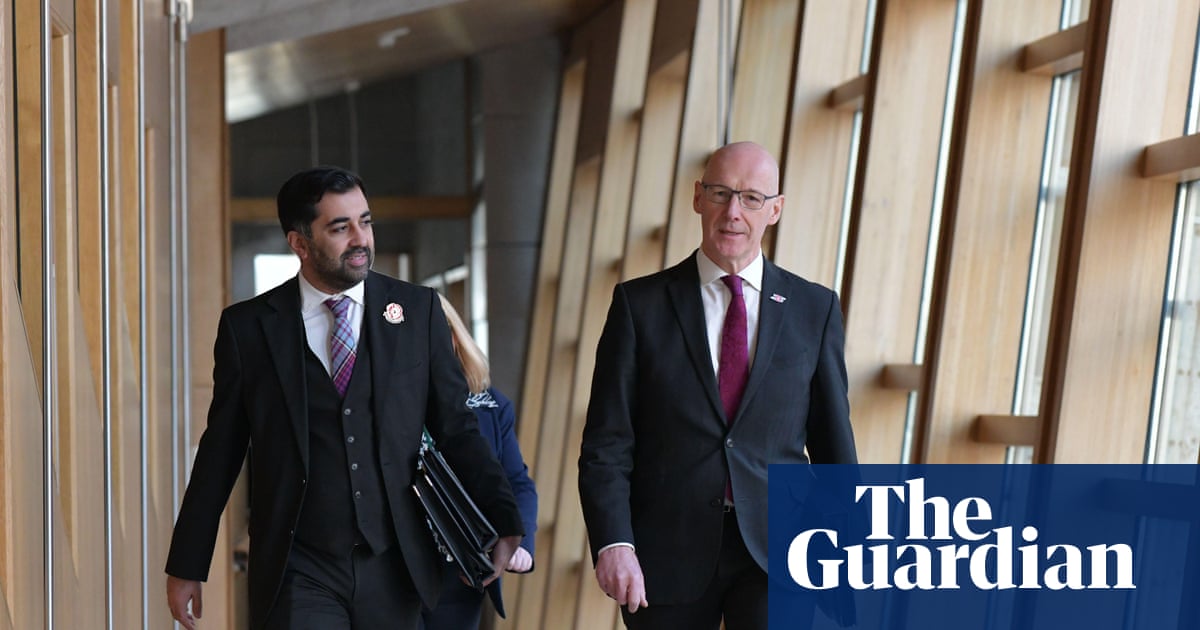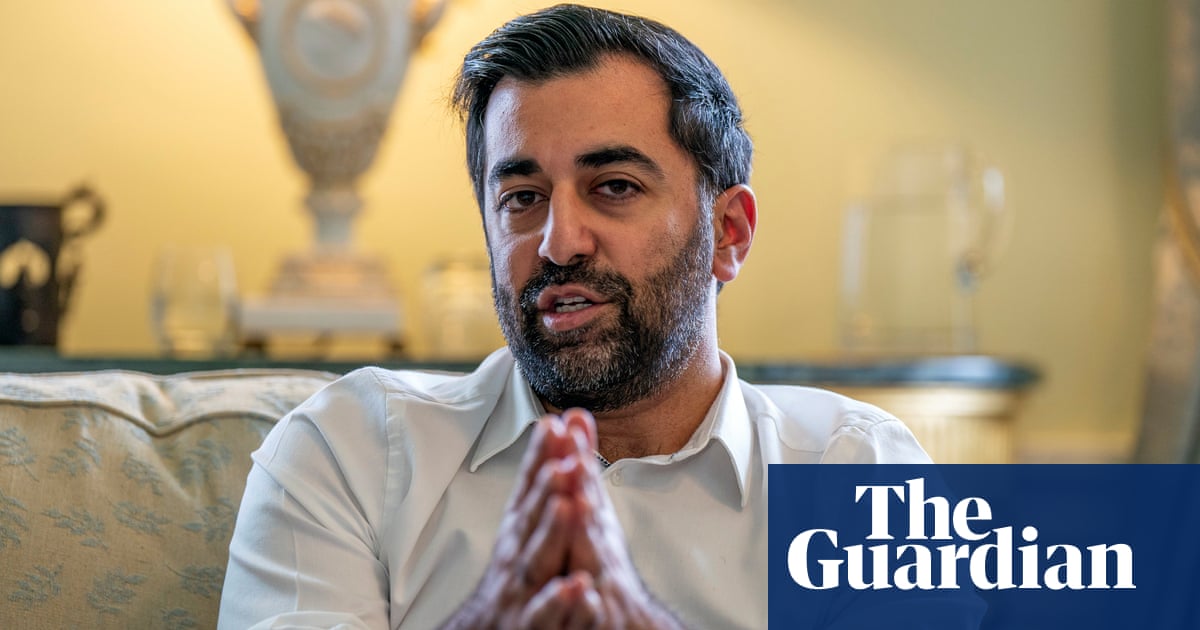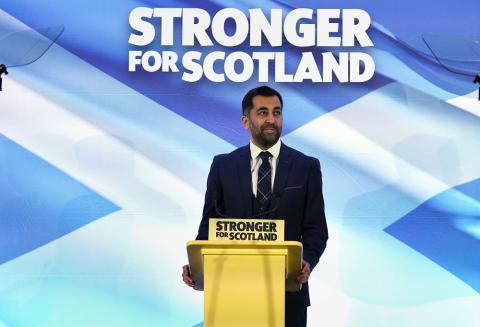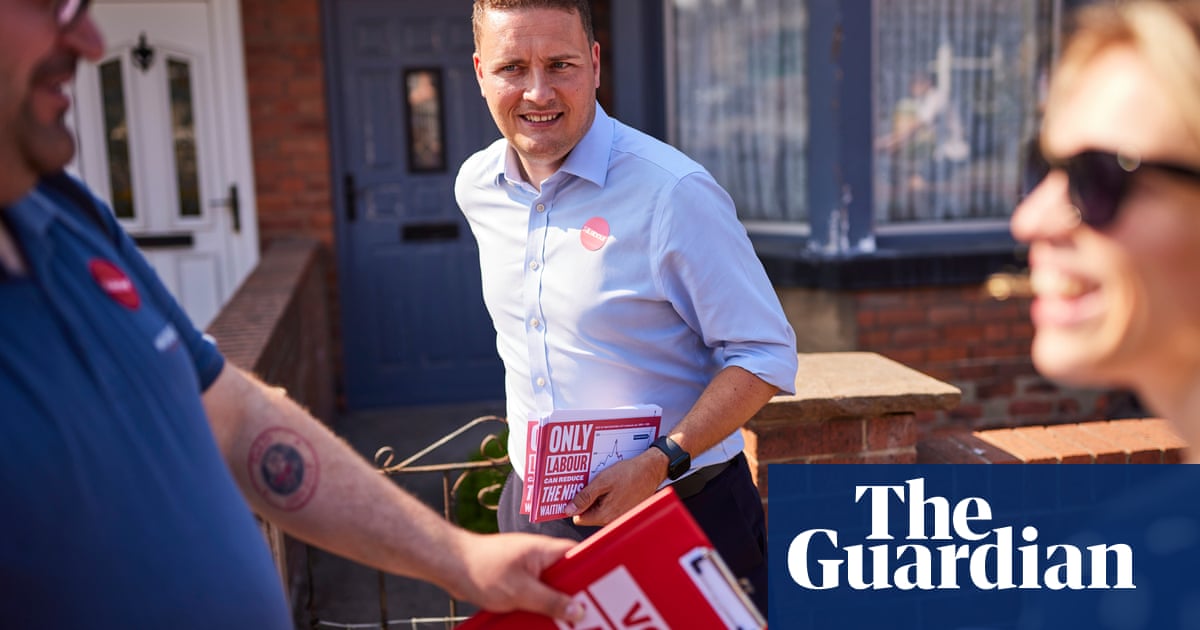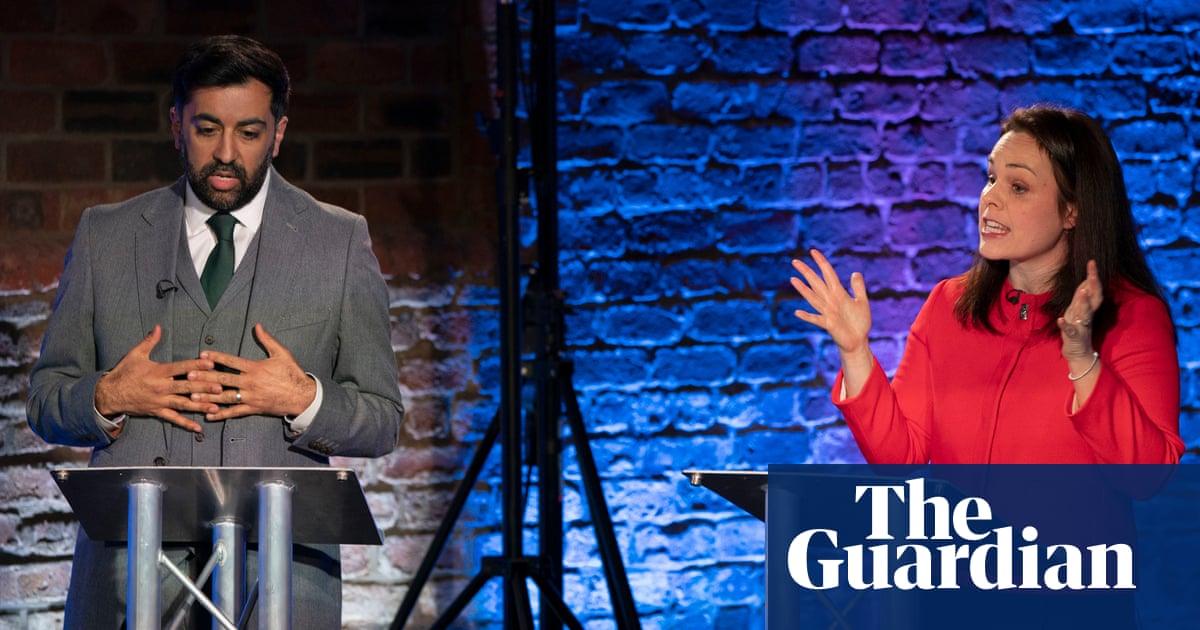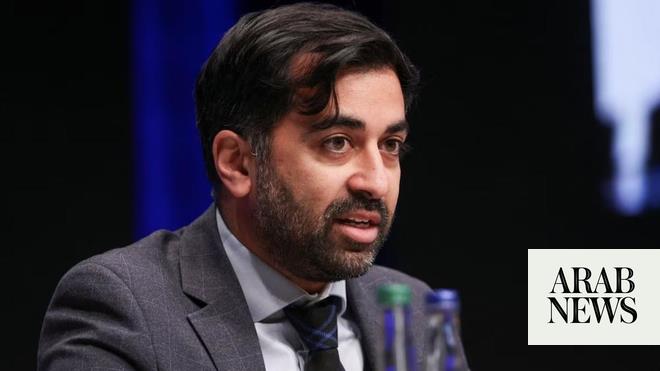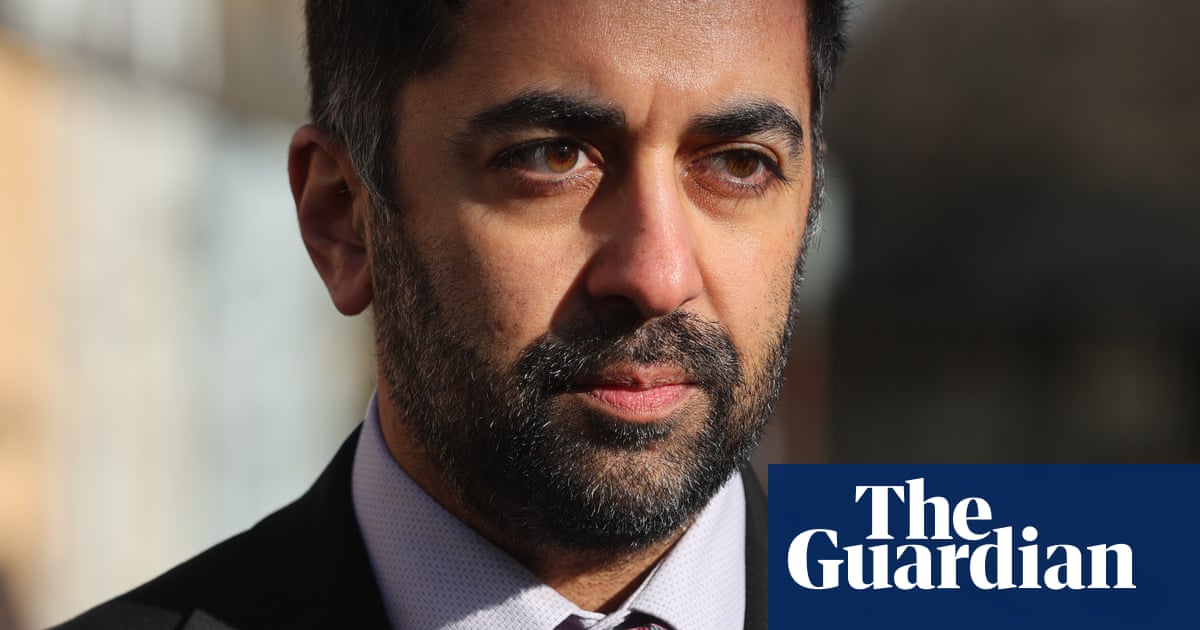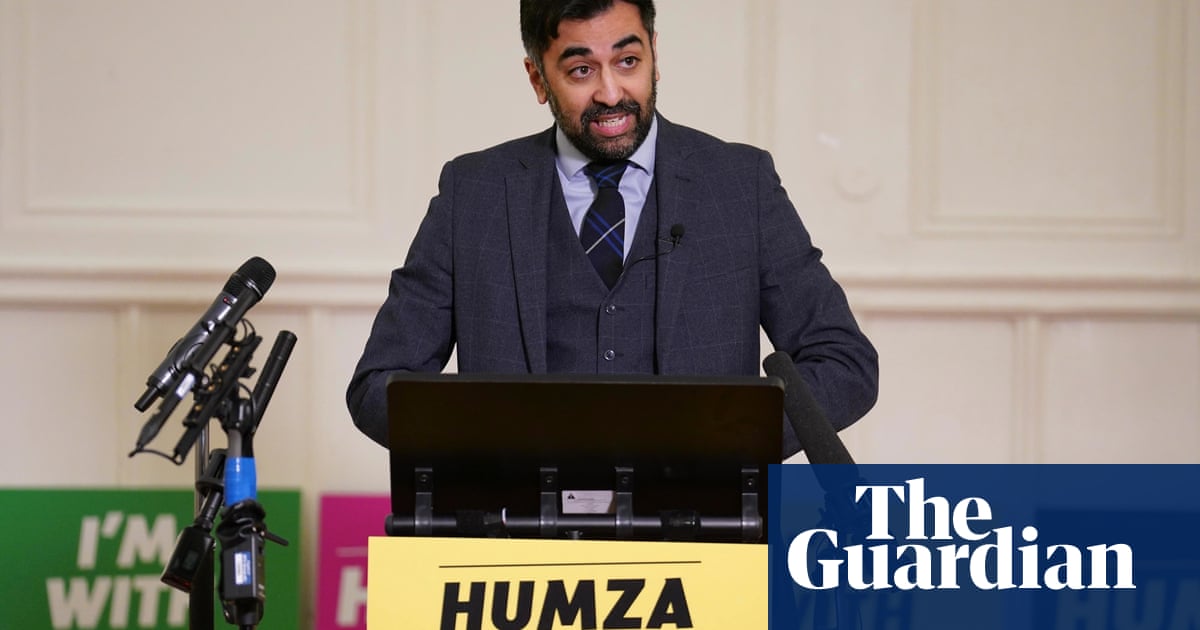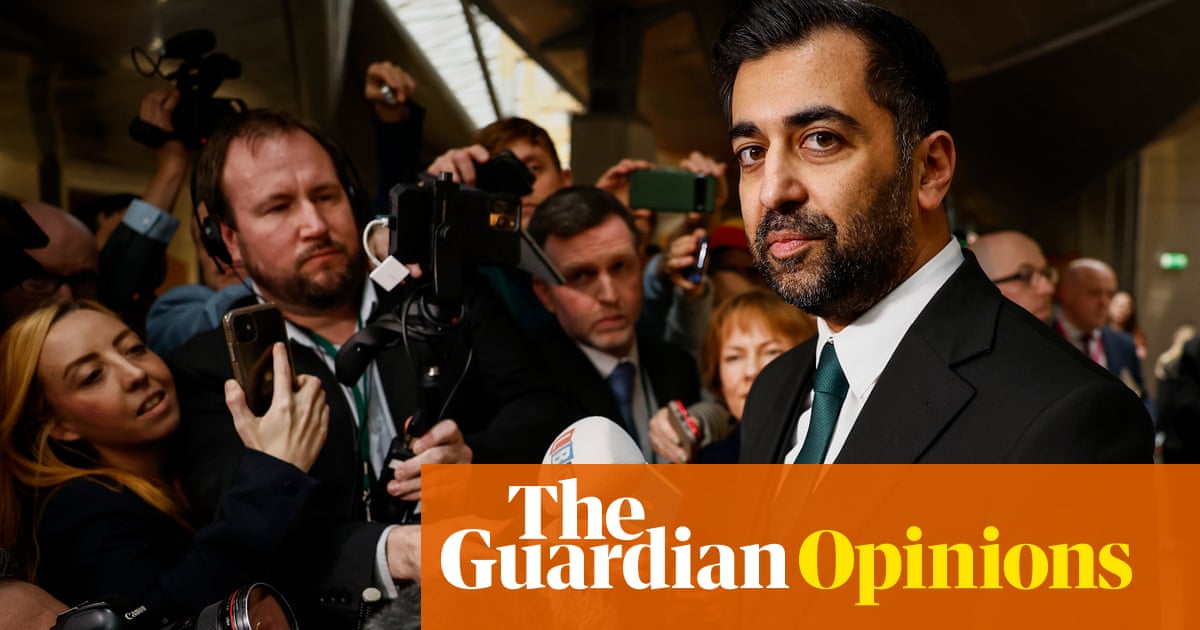
Almost seven years ago, David Cameron raised liberal hackles when he hummed a happy tune after resigning as prime minister and leaving other politicians – and the country – to clean up his Brexit mess. At that time, Nicola Sturgeon was riding high on the moral high ground, pitting her vision of an independent Scotland within the EU against Cameron’s cynical squandering of the UK’s membership. Today, the moral high ground has crumbled under her feet, and her own cynicism is unmistakable. Like Cameron, Sturgeon left her post with a breezy goodbye. But her successor, unlike Theresa May, who knew she would have to deliver on the leave vote, was not privy to the carnage trailing in Sturgeon’s wake.
Succeeding her was never going to be easy, but Humza Yousaf’s haunted expression suggests he had no idea of the toxicity of the chalice being offered him by those who purported to be friends. What kind of a party allows a leadership election to be held without telling those competing that its membership numbers are in freefall, its finances are a mess, its auditors have quit and the investigation into a “missing” £600,000 is about to turn its spotlight on to its former chief executive Peter Murrell and former treasurer Colin Beattie? Oh, and that there has been a £110,000 camper van bought by the party sitting on a driveway for two years.
It is this, as much as the arrests, that disappoints. While the scale of the police activity is unsettling – and the party clearly has governance and transparency problems – it is impossible to discern if anything incriminating has been discovered or if charges will follow. What appears undeniable, however, is that Yousaf has been used as a fall guy, put out to catch the bullets Sturgeon escaped by leaving the frontline. You may sympathise with him, as a man who cannot set out his priorities for government without another party member being detained, or you may think that, having served in the cabinet for five years, he brought it on himself; but the behaviour of those who pushed him into that position has been tawdry enough to tarnish the Sturgeon era, regardless of what happens next.
My own opinion is that Yousaf felt entitled to the SNP crown, though he had done little enough to earn it. Recent events will hopefully prove as chastening as the humiliations inflicted in Victorian morality tales. Though some of the criticism of his handling of the questions fired at him is overstated – is there a good way to answer: “Are you surprised [the party treasurer] has been arrested?”? – the storm has exposed some of his weaknesses. He is not a brilliant speaker, can be overly defensive and lacks Sturgeon’s ability to deflect with self-deprecation or humour. He will have to learn those skills if he is to survive.
He will also have to cut himself loose from his predecessors, something he has so far seemed reluctant to do. Replying “it would have been helpful” when asked if Sturgeon should have informed him about the lack of an auditor is a euphemism too far. As for thanking Beattie as he stepped back from the role of treasurer, well, it’s nice to be nice, but if Yousaf is serious about the SNP getting its house in order, he needs to be ruthless in his approach towards those who presided over its current crisis.
Ditto Yousaf’s deputy, Shona Robison, who talked of “a culture being allowed to develop at headquarters” but, when asked if Sturgeon was to blame, said “it probably goes beyond [her]”. Given the lack of transparency within the party has been obvious for years, she was right to suggest “everyone is to blame for not resolving some of these governance issues”. But who is responsible for allowing a culture of secrecy to develop, if not the leader of the party?
Policy-wise, Yousaf tried to undo the damage caused by his “continuity candidate” tag by delaying the controversial bottle deposit return scheme and the national care service. His emphasis on raising taxes on the wealthy arguably signals a move to the left. But then signalling a move to the left has been the SNP’s MO ever since Sturgeon became first minister; it’s the following through that’s been the problem. Whether Yousaf will or won’t remains to be seen.
Tackling poverty is of course a valiant aim. Time and again the plight of Scotland’s most marginalised people has been subordinated to constitutional and culture warfare, and now, potentially, financial impropriety. Admittedly, it is difficult for Yousaf to seize control when he doesn’t know who will be arrested next, or where it will all end. But there is no chance of him functioning as a credible first minister until his party has won back public trust.
Beyond the SNP, the wider yes movement and the country as a whole should take a long hard look at itself. A frequently asked question is how it could have taken so long for supporters to realise something was amiss. One explanation lies with the deep polarisation that has taken place since 2014, as two opposing camps formed along the gradualist/fundamentalist, progressive/gender critical, Sturgeon/Salmond divides. With polarisation comes defensiveness, and a refusal to accept there might be any truth in anything the other side says.
But equally, if the Sturgeon camp won’t countenance the slightest criticism of her style of governance, the Salmond camp is likely to up the ante. In a similar vein, if the Sturgeon camp feels it is under attack, then the more secretive it is likely to become. But the more secretive it becomes, the more likely it is to be attacked.
This polarisation is playing out in front of us now. There are Sturgeon devotees who believe the arrests are an anti-independence MI5 operation; and Sturgeon haters (both Salmond loyalists and unionists) who would rather she turned out to have been corrupt than that Scotland had been governed well. Some of the latter group talk darkly of the couple’s “luxury villa in the Algarve”, a property that has been owned by the Murrell family for years.
These deep-seated divisions are tearing Scotland apart. Winning arguments has become more important than improving the lives of those who live here. Somehow we need to get back to a place where our critique of politicians does not depend on where we stand on the ideological battlefield.
Dani Garavelli is a freelance journalist and columnist for the Herald




